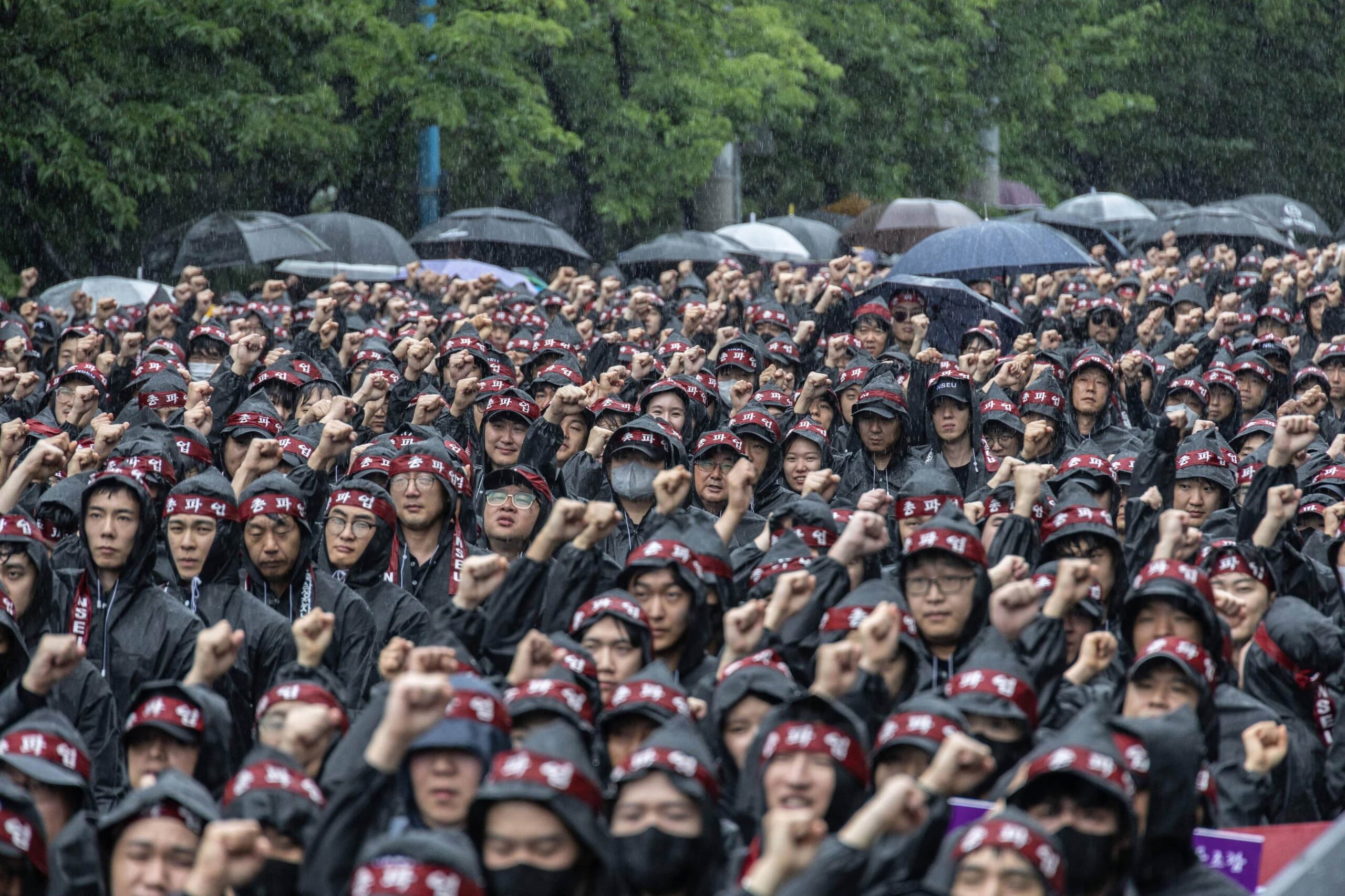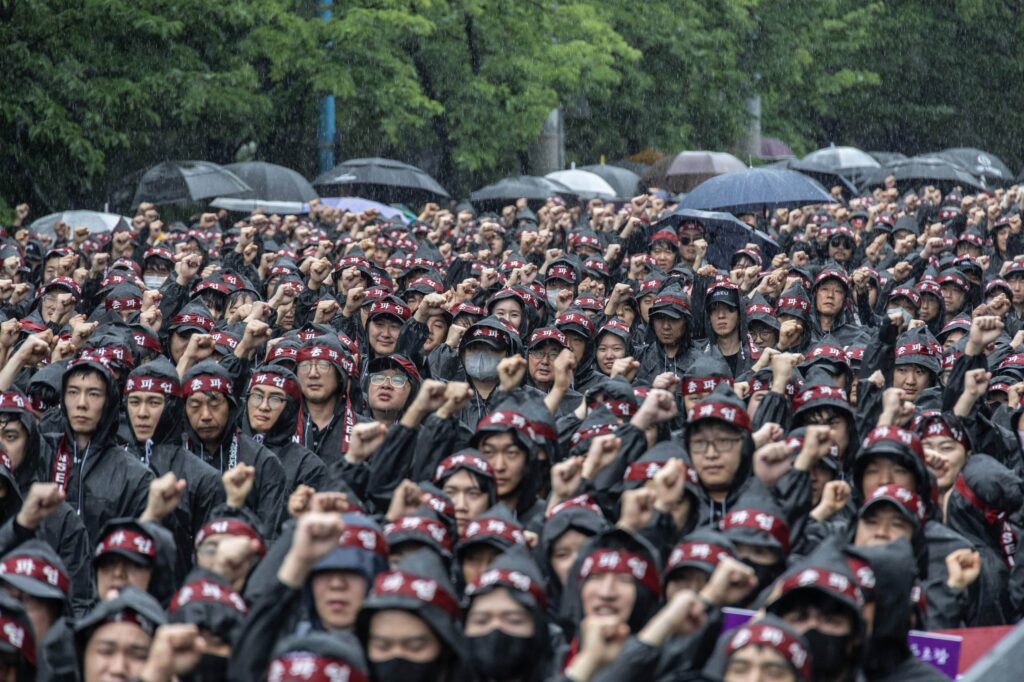Samsung Workers Announce Indefinite Strike, Threatening Global Tech Supply
Samsung Electronics Co.’s largest labour union, comprising more than 30,000 workers, has declared an indefinite strike, raising concerns over potential production disruptions at the world’s leading memory chipmaker. This surprise move intensifies the ongoing dispute with South Korea’s largest company. The situation escalated after thousands of workers held rallies outside Samsung’s chipmaking complexes south of Seoul earlier this week. Originally intended as a three-day walkout to demand better pay, the strike has now become the most significant organized labour action in Samsung’s half-century history. The total number of participants responding to the union’s call remains unclear, but there are concerns that the action could snowball, affecting Samsung and potentially prompting similar responses across the recovering tech and chip industry.

Image Source: business-standard.com
“Management has no intention of dialogue,” the union stated on its website. “We have clearly identified line production disruptions, and the company will regret this decision.” The union plans to initially target a smaller 8-inch production facility that relies heavily on human workers, before moving on to high-bandwidth memory production in Pyeongtaek. “Management will eventually relent and come to the negotiating table,” the union asserted.
Impact on Samsung and the Tech Industry
The strike has already impacted the financial markets, with shares of Samsung dipping 0.3% in Seoul on Wednesday. Suppliers such as Wonik IPS Co., TES Co., and Soulbrain Holdings Co. also saw their stocks decline. Despite Samsung’s largely automated production processes, the company faces significant risks if any manufacturing disruptions occur in the coming weeks. Currently, Samsung is trying to secure Nvidia Corp. as a client for its high-bandwidth memory, a crucial step in catching up to smaller rival SK Hynix Inc. in the rapidly growing AI sector. “Samsung will ensure no disruptions occur in production lines,” the company said in a statement, emphasizing its commitment to engaging in good faith negotiations with the union.
The strike occurs amid a global semiconductor supply chain grappling with heightened US-China tech rivalry and other geopolitical challenges. Samsung holds a substantial share of the market, accounting for roughly 20% of global DRAM and about 40% of NAND flash used in smartphones and servers. Analysts note that investors remain largely unfazed by the strike, focusing instead on how quickly Samsung can secure Nvidia’s approval to supply HBM. “The market has little interest in the strike,” said Lee Seung-woo, head of Eugene Investment & Securities’ research center. He added that it is difficult to assess the strike’s impact on earnings, as any production disruption might drive up chip prices.
The workers’ demands follow Samsung’s recent 15-fold surge in operating profit for the June quarter, reflecting.

I am a law graduate from NLU Lucknow. I have a flair for creative writing and hence in my free time work as a freelance content writer.
